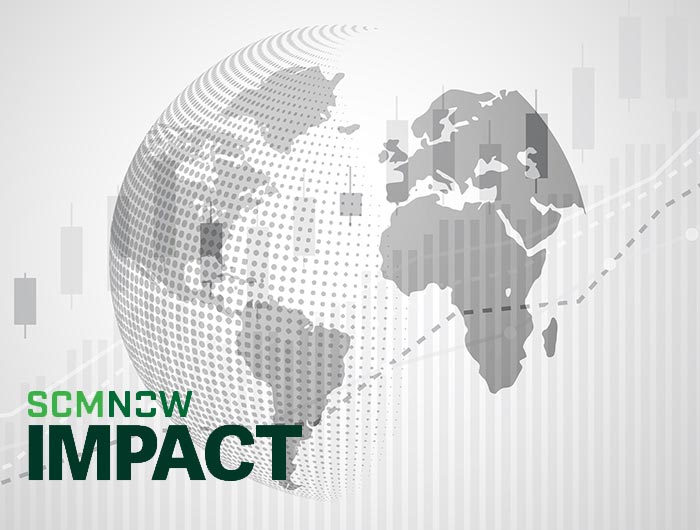Editor’s note: Eliud Muriithi is director of commercial services at Kenya Medical Supplies Authority (KEMSA). KEMSA is a state corporation under the Ministry of Health whose mandate is to procure, warehouse, and distribute drugs and medical supplies. These supplies are provided for prescribed public health programs, the national strategic stock reserve, prescribed essential health packages and national referral hospitals. KEMSA also supports county governments in establishing and maintaining appropriate supply chain systems for drugs and medical supplies to health institutions.
Rennie: Most societies are not ready for a fast-moving pandemic like COVID-19, particularly vulnerable populations who are disproportionately at risk. What is your organization doing to ensure that these people — the homeless, the elderly, those living in multi-generational households — are identified and supported?
Muriithi: KEMSA is a public entity that supports the Government of Kenya in managing public supply chain on behalf of the Minister of Health. If I may start by what the Government of Kenya has done —the president himself has taken up the mantle by assuring that he appoints a national response committee on coronavirus. This committee, which is charged with the responsibility of coordinating interventions, were able to set up a National Response Center within seven days of establishment.
KEMSA also works closely with the Ministry of Health and other stakeholders to identify health products and technologies that are required in response to the coronavirus. HPTs, or health products and technology, have been identified; notifications have been made; and HPTs have been sourced from different suppliers, some of them internationally.
Rennie: The director general of the World Health Organization is asking for global unity to change the course of this pandemic. So far, this kind of solidarity has been lacking. Have you experienced any challenges in this regard?
Muriithi: We have had issues to do with importation of HPTs from different countries. Some of the countries have said, “No more export of HPTs,” because they want to address their internal needs first. We responded to our internal suppliers and ensured that we mobilized the necessary supplies required, especially in regard to infection prevention and control products — personal protective equipment (PPEs), such as masks, coveralls and goggles.
Rennie: What is your health supply chain doing to adopt a more unified, collaborative path forward in Kenya?
Muriithi: The president, as I mentioned, has put everybody in a gear where everybody thinks about the nation first; everybody thinks about the people of Kenya first. We are not thinking about ourselves, and that includes the private sector. Most important, all stakeholders are working in unison to ensure that everybody's contribution is recognized. We are not here to capitalize or make a profit, but to ensure that services are rendered.
The president called us to action, and we have been meeting as government officers. The private sector has been sitting down with us, as well, to ensure that everybody brings on board what they are able to. Those are some of the common fronts that are being done by different people to ensure that we are facing the pandemic not as individuals, but as a country.
KEMSA has mobilized the different suppliers of COVID-19 products and trying to communicate to them that here we are not doing business as usual; we are doing business as unusual for the common good of Kenyans.
Rennie: If the pandemic has a silver lining, it may be that it offers health care professionals from around the world opportunities to embrace creativity, collaboration, identification of weaknesses, and ensuring we are better prepared in the future. What is your health care supply chain doing to maximize these opportunities?
Muriithi: COVID-19 has given us an opportunity to relook at our health systems — not just ourselves, but the entire public health supply chain system — and ensure that we are able to respond to any pandemic or epidemic that arises. In essence, it’s relooking at the entire health spectrum: looking at health financing, looking at issues to do with human resources for health, looking at health supply chain issues. It is a 360-degree relook at our health systems.
Over and above COVID-19, there will be other issues arising in the future. This is a wake-up call for the world to rethink our manufacturing. I think we over-relied so much on countries like China. We need to do things differently. We need to put mechanisms in place so that, in the event that something comes, we are able to respond. And we need to ensure that we have programs in place in anticipation of any emerging crisis.
Locally, we are talking to potential manufacturers about zeroing in on manufacturing certain products so that we are able to respond to our own internal needs. Because, if the pandemic was to continue — even if Kenyans are not affected — they will be affected in some way.
Rennie: What advice would you give to supply chain professionals across the globe who are working to solve these problems right now?
Muriithi: All of us in the supply chain systems must ensure that we are in consonance with the expectations of our stakeholders. Looking at the pandemic, there is a potential crisis of stockouts of necessary essential medicines and medical supplies. There is every need for the international community to work together to ensure that support can be forthcoming.
Our government has been engaging with different governments to see how best we can get supplies from countries that are not as much affected or that have more supplies because they are manufacturing. It calls for common fronts and not just for the local governments, but all the international community, to work together to ensure that we are fixing this pandemic as a family of the living in the world.
Elizabeth Rennie is Editor-in-Chief for SCM Now magazine. She may be contacted at erennie@ascm.org.



